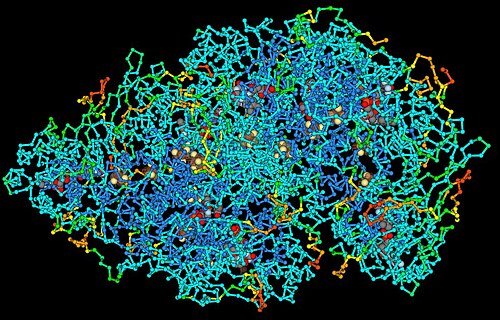Polymernoun
(organic chemistry) A long or larger molecule consisting of a chain or network of many repeating units, formed by chemically bonding together many identical or similar small molecules called monomers. A polymer is formed by polymerization, the joining of many monomer molecules.
Polymernoun
A material consisting of such polymer molecules.
Polymernoun
Any one of two or more substances related to each other by polymerism; specifically, a substance produced from another substance by chemical polymerization.
Polymernoun
a naturally occurring or synthetic compound consisting of large molecules made up of a linked series of repeated simple monomers
Polymer
A polymer (; Greek poly-, + -mer, ) is a substance or material consisting of very large molecules, or macromolecules, composed of many repeating subunits. Due to their broad spectrum of properties, both synthetic and natural polymers play essential and ubiquitous roles in everyday life.
Macromoleculenoun
A very large molecule, especially used in reference to large biological polymers (e.g. nucleic acids and proteins).
Macromoleculenoun
A very large molecule, especially a polymer having from hundreds to many thousands of atoms, such as DNA, RNA, protein, polysaccharide, polyethylene, polycarbonate, etc.
Macromoleculenoun
any very large complex molecule; found only in plants and animals
Macromolecule
A macromolecule is a very large molecule, such as a protein. They are composed of thousands of covalently bonded atoms.










